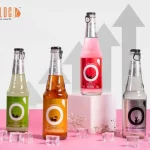Thankfully, we have been living in an advanced and comparatively humane age when even common human beings’ mental well-being is also being given some focus in our day-to-day lives. We as a species have eventually begun to show concern about our mental well-being. Though human civilisation emerged some 8000 years ago, strangely mental health has entered public discourse in a big way only in the latter half of the twentieth century.
At the same time, the tension-filled fast-paced lifestyles of today have brought into focus the crucial issue of anxiety disorders and depression and other mental health issues into our often cluttered minds. In 2022, WHO described that “A mental disorder is characterised by a clinically significant disturbance in an individual’s cognition, emotional regulation, or behaviour. It is usually associated with distress or impairment in important areas of functioning.”
From WHO’s website we can come to know that in 2019, 1 in every 8 people, or 970 million people around the world were living with a mental disorder, with anxiety and depressive disorders being the most common. In 2020, the number of people living with anxiety and depressive disorders rose significantly because of the COVID-19 pandemic, observed WHO.
WHO observed in 2022 that while effective prevention and treatment options existed, most people with mental disorders did not have access to effective care. The situation is of course, similar in 2024 too. It is not uncommon for many people affected with mental disorder/s to experience stigma, discrimination and violations of human rights.
The possibility of mental health issues adversely affecting performance in the corporate world is now being increasingly perceived as a very real issue in the world of business. At the same time, the use of post-modern digital technologies to address myriad mental health issues has become a need of our times, which can make addressing mental health issues not impeded by geographical constraints.
In this scenario, the introduction of Moodcare, a mindfulness-based cognitive therapy app, which utilises artificial intelligence (AI) and cognitive-behavioural therapy (CBT) techniques to help users to manage stress, anxiety, and depression, has the potential to play a significant role in the healthtec space, in the B2C segment. The app is the product of a company named Moodcare Teknoloji AS, which was founded in 2020.
According to Tracxn, Moodcare acts as the provider of a chatbot solution to assist with mental wellness. It offers a mobile application that uses cognitive behavioural therapy (CBT) and meditation techniques to analyse and keep track of human emotions. It also enables users to communicate with AI-driven bots about their emotions and challenges, including stress management, depression and anxiety symptoms, relationship issues, procrastination habits, and lack of motivation. Moodcare also provides training and practical activities, which are developed by psychologists and academicians.
San Francisco-based Moodcare, which is developed by clinical psychologists, academicians, AI experts, and ex-Uber founder, has the mission to make mental health services accessible for many people.
With the help of Moodcare, one can give direction to one’s life and emotions with more than 50 activities based on Cognitive Behavioral Therapy (CBT) and meditation techniques, designed for a variety of needs. With the Moodcare app, one can deal with one’s negative emotions and thoughts too.
According to the website of Moodcare, by participating in its weekly programs, one can reach a happier and more peaceful life by applying the training and daily practical activities designed by psychologists and scholars.
Moodcare offers a seven-day interactive educational program covering topics such as depression, anxiety, resilience, and various other mental health-related subjects. Here users can interact with AI-driven therapeutic chatbot, Moody to talk about their emotions and to feel better.
Moody offers personalised techniques that help to better manage stress. It helps one to understand one’s emotions and relax with scientifically proven suggestions, based on one’s feelings at that moment.
Moodcare is very useful in an office environment too. With Moodcare for work, one can allow and support one’s team members to reach a healthier and happier lifestyle.
Moodcare also claims to build psychological resilience. With Moodcare, an employer can increase employee focus, creative thinking, and collaborative working skills of her/his team members. From the website of Moodcare we could glean that by the usage of Moodcare, creation of a happy, dynamic work environment and increase of employee satisfaction could be facilitated.What is more, with Moodcare, the employer or the HR Head and her/his team can reach to activities used in real talk therapies, ranging from cognitive restructuring to mindfulness and many more, according to personal needs. Of course, CBT based techniques are provided through Moodcare App to reach individual and personal goals.





